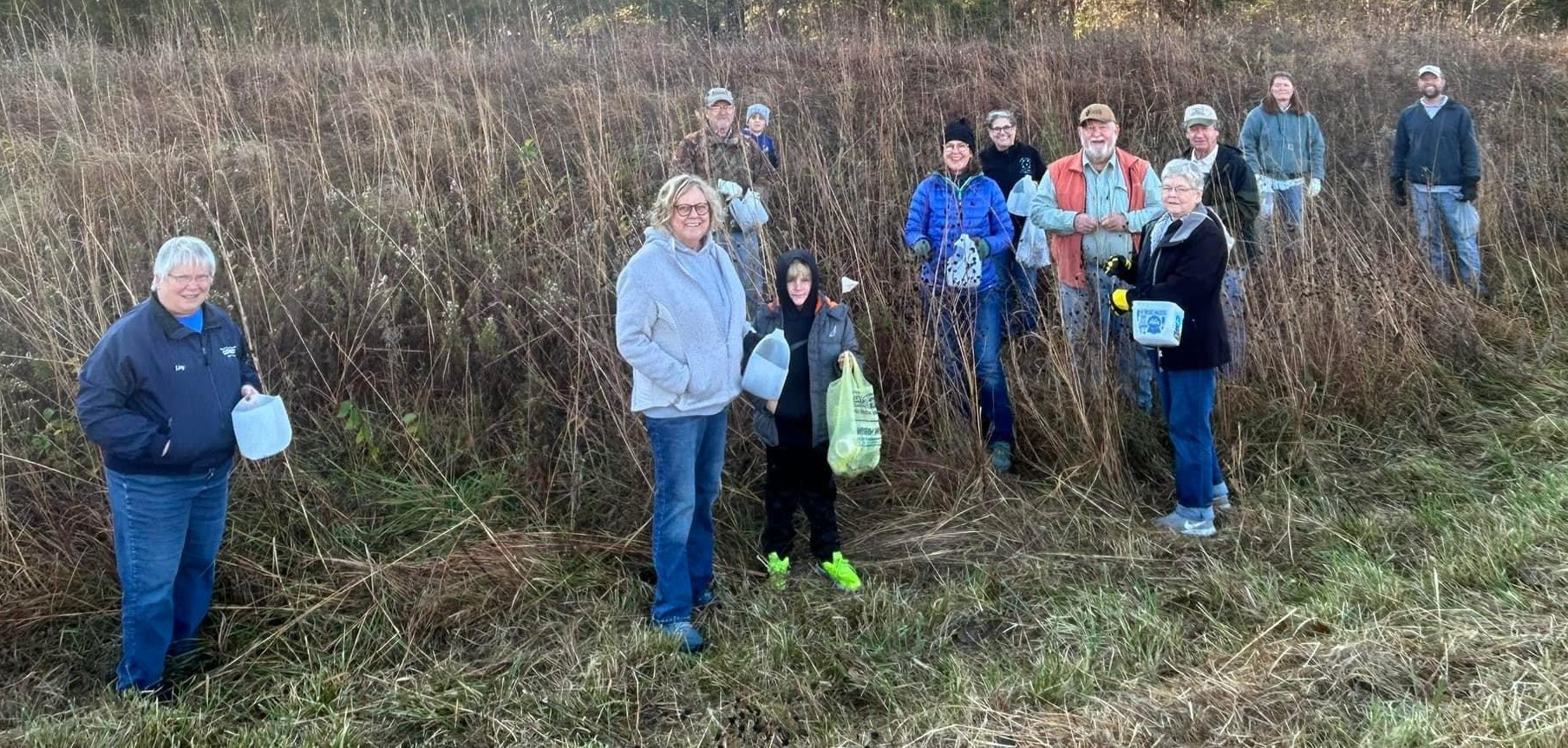Master Naturalists: Improving Missouri’s environment for 20 years

HANNIBAL, Mo. — Master Naturalists have conducted educational projects and volunteer community service to improve Missouri’s environment for the past 20 years. Master Naturalists are drawn to everything in nature from birds and bats to bees and trees.
The Mississippi Hills Master Naturalist Chapter is one of 12 chapters in the state. Its 100-plus members have quietly made improvements to northeast Missouri’s environment since 2018. The Missouri Master Naturalist program is conducted through a partnership between the University of Missouri Extension and the Missouri Department of Conservation.
The chapter’s volunteer service work sometimes produces immediate gratification and highly visible improvements. Other times, like the group’s recent prairie restoration project, take years before results show. The project centers on a small remnant of prairie at the intersection of U.S. 36 and Missouri Route J, which remains despite years of highway construction.
“On the surface, it just looked like a lot of grasses and a few plants,” says Jonathan McClelland, one of the chapter’s newest members in a press release.
Upon further inspection, he and others found a treasure trove of untouched prairie ecology.
“What is most amazing is that after almost 170 years of continuous development of the closest town, Monroe City, there is still, just beneath the surface of the soil, a solid community of prairie plants which have survived, thrived and remain with us today,” he said.
Master Naturalists collected seeds from plants on the prairie area, burned the area to rid it of thatch and then reseeded sparse areas. The project is one of 32 prairie projects undertaken by the group in the past four years, testimony to the chapter’s dedication, says MU Extension agronomist Nick Wesslak, who serves as the MU Extension chapter adviser.
Chapter members participate in many activities, including hiking, kayaking on the Salt River, building bird houses with 4-H members, tracking Indiana bats and offering educational programs on eagles, art, safety, trees and many other nature-related topics, says chapter president Theresa Casey.
They’ve also done cleanup of trees damaged by emerald ash borer and planted native plants to improve habitat for bees and other pollinators. With the chapter’s territory bookended by the Mississippi River and Mark Twain Lake, there is no shortage of volunteer service opportunities.
One of the chapter’s ongoing projects is rebuilding fish habitat structure at Mark Twain Lake, a U.S. Army Corps of Engineers project completed in 1983. Trees, initially covered with lake water, provided fish habitat but have degraded over the decades. Master Naturalists work with the Corps and MDC officials to restore fish habitat by collecting and placing discarded trees and brush at different locations throughout the lake to replace the decaying habitat.
Members also are working to get the lake area designated as part of the Great Missouri Birding Trail, a partnership between the Missouri Bird Conservation and MDC. The trail helps birders find the “best of the best” places to birdwatch in the state, says member Bob Kendrick.
Chapter members also educate the public about an endangered bat species, the Indiana bat. They monitor the bats, which travel from limestone mines along the Mississippi River to forested areas near Mark Twain Lake’s Indian Creek Recreational Area.
In addition to conducting a variety of projects that improve the environment, chapter activities provide social opportunities for members. The chapter includes local people from all walks of life, as well as those who have retired in the Mark Twain Lake area who gather for hikes in the woods and coffee around campfires.
The many volunteer service hours contributed by the Mississippi Hills Chapter of the Master Naturalist Program represent what chapters across the state are doing to improve the environment, says MU Extension state wildlife and fisheries specialist Robert Pierce.
According to Pierce, more than 3,000 volunteers have been trained as Missouri Master Naturalists since 2004. Volunteers have provided over 900,000 hours of service to communities providing an economic value of more than $26 million. In 2024, volunteers provided more than 70,000 hours of service to local communities. The economic impact of Missouri Master Naturalist volunteer service in 2024 is valued at more than $2.6 million dollars.
Learn more at http://muext.us/MasterNaturalist.
Miss Clipping Out Stories to Save for Later?
Click the Purchase Story button below to order a print of this story. We will print it for you on matte photo paper to keep forever.

